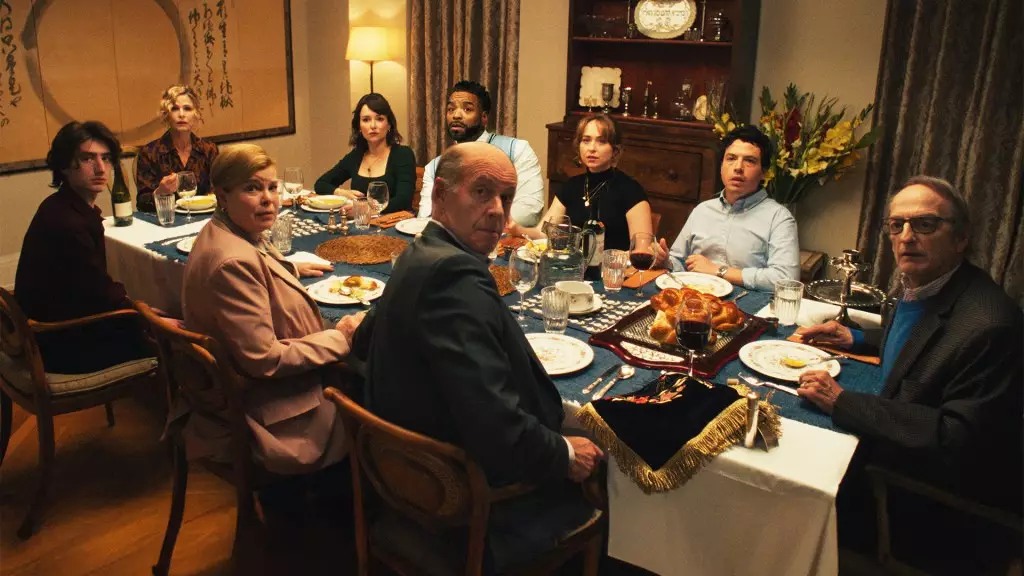In a cultural landscape dominated by blockbuster franchises and high-octane streaming releases, the modest achievements of indie films are often dismissed or underestimated. However, recent box office reports reveal a different story—one of perseverance, genuine connection, and subtle innovation. Films like *Bad Shabbos* demonstrate that, even amid industry skepticism, small films can carve out meaningful spaces in theaters and audiences’ hearts. This isn’t mere luck; it’s a testament to the authenticity that independent filmmakers bring to the screen—an authenticity that often gets lost in the noise of mainstream cinema.
What makes these indie projects so resilient? It’s their ability to foster word-of-mouth buzz over time, rather than relying on large marketing budgets or splashy premieres. *Bad Shabbos*, which has held a multi-week presence in cities like Boston, Los Angeles, and New York, exemplifies this shift. Its steady performance underscores a broader truth: audiences crave relatable, often quirky stories that reflect their realities and amuse them. It’s a reminder that the power of a film isn’t solely dictated by initial grosses but by its capacity to engage viewers and stay relevant through continuous word-of-mouth promotion.
Challenging Industry Assumptions about Audience Preferences
The recent success of *Bad Shabbos* signals more than just a fleeting hit; it challenges the pessimistic narrative often centered on declining theatrical attendance. Critics and industry insiders have long argued that the theatrical experience is dying, but these small wins point to an audience still hungry for shared cultural moments—moments rooted in storytelling that feels personal and authentic. When indie films like *Hundreds Of Beavers* and *Secret Mall Apartment* continue to draw specific groups of passionate viewers months after their release, it suggests that demand for distinctive, thought-provoking cinema has not disappeared—it’s simply waiting for the right kind of support and patience.
Furthermore, the conventional wisdom that only high-profile stars and flashy marketing can sustain a film in theaters is flawed. Films like *Bad Shabbos* prove otherwise. Its ensemble cast, including well-known talents like Cliff “Method Man” Smith and Milana Vayntrub, adds value, but it’s the film’s genuine humor and relatable plot about interfaith relationships and family tensions that resonate deeply. The movie’s sustained success offers a critique of industry over-reliance on star power; authenticity and storytelling craft are more vital than ever in cultivating a dedicated audience.
The Fragile Balance Between Art and Commerce
However, the indie market’s incremental successes should not blind us to its fragility. The overall numbers are modest compared to Hollywood blockbusters—*Bad Shabbos* grossed around $250,000 over several weeks, a figure modest by mainstream standards. Yet its sustained presence challenges the notion that art house and indie films are doomed to obscurity. They reveal a resilient core audience willing to seek out meaningful, inclusive stories—stories that the industry often neglects because they don’t promise quick financial returns.
The niche appeal of films like *Cloud* or *To A Land Unknown* further emphasizes this point. While their grosses are tiny in comparison to mass-market giants, they serve their purpose in enriching cultural diversity and providing alternate narratives. These films are more than just commercial ventures; they are cultural statements. Their continued presence demonstrates that cinema is still a vibrant space for experimentation, representation, and storytelling that prioritizes quality over spectacle.
In Defense of Independent Cinema’s Future Dynamics
What does this all mean for the future of indie films? It signifies an imperative for industry players to shift their perspective. Instead of fixating on immediate box office numbers, there must be recognition that these small successes, when nurtured adequately, can lead to broader cultural influence. Distributors like Menemsha Films understand this; they know that getting a film into a handful of theaters for extended periods can build a dedicated viewership, which eventually translates into sustained relevance.
The ongoing popularity of films such as *Bad Shabbos* also highlights the importance of community and regional theater networks. These spaces foster a sense of ownership and intimacy that streaming platforms often cannot replicate. They serve as cultural hubs where diverse stories can breathe, evolve, and quietly challenge mainstream narratives. Encouraging this ecosystem of independent films is critical—not just for artistic diversity but for sustaining a democratic cinema culture that truly reflects a multiplicity of voices.
In a broader context, these small victories reinforce the necessity for a balanced industry—one that values cultural impact over sheer box office numbers, prioritizes storytelling integrity, and invests in diversity. When films like *Bad Shabbos* defy expectations and continue to thrive in limited release, they underscore that honest, well-crafted cinema still has the power to inspire, challenge, and entertain—on its own terms.



Leave a Reply